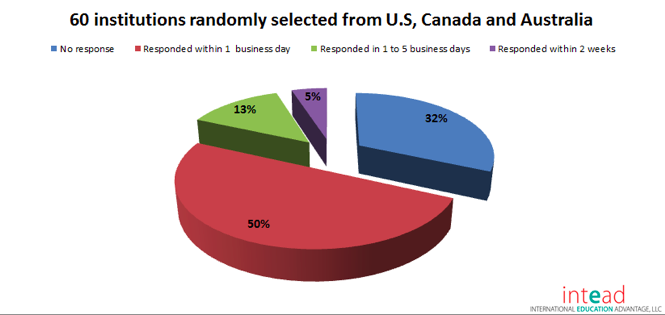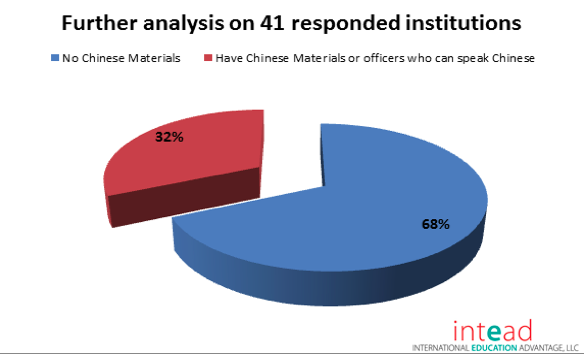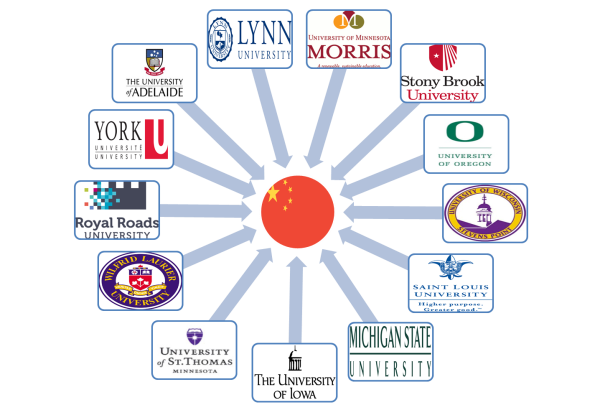Well we've done it again. It provided such a fascinating glimpse into how institutions engage with prospective students that we decided to run the experiment all over again. If you are an avid reader of our blog (thanks, Mom!) then you know that last May we published the results of our mystery shopper experiment, phase one. We could hardly believe that nearly 25% of institutions we contacted to request information for a prospective Chinese undergraduate student never replied. For the full report, read our blog 25% Don't Reply to Prospective International Student Inquiries. Since we ran that experiment in the spring, April to be exact, we decided we would try it again in the fall. And so we bring to you, dear readers, the results of the mystery shopper experiment, phase two.
Here's what we did. Our Chinese analyst sent an email to 60 institutions total, 40 in the US, 10 in Canada and 10 in Australia, to request information about their undergraduate programs. In some cases he submitted an online inquiry form; in other cases he sent an email directly to the undergraduate admissions office or to the office that handles international student admissions. He requested information about the undergraduate program and specific information in Chinese to share with his parents who have limited English skills.
Of those 60 institutions, 32% (yikes!) did not reply within two weeks time. Shocking, I know. Yes, as a former admission counselor I know that this is a crazy time of year. Admission counselors are on the road, emails pile up exponentially and it is nearly impossible to reply to every student who sends a request for information. But, and this is an important but, there are sophisticated and even relatively unsophisticated systems that can allow admission offices to regularly and consistently reply to student inquiries. There is no excuse for ignoring a student inquiry.
Think about it. A student has taken the time to navigate your website, which I can assure you is not always as easy as it seems. The student then sends a request for information and awaits response. If the student is sending your institution an information request, he/she is likely contacting numerous universities. As the student receives the responses, he/she is making assessments about the institution and developing a feeling about the place. Is the response timely? Is it personalized? Does it provide the information requested? Does the student feel that the university is genuinely interested? This is what goes through the mind of a prospective student. And when the student doesn't receive a response at all, well, you can imagine what the student thinks.

Now if your institution is in the 32% (yikes!) of institutions that never sent a response, why, oh why, would this student continue to show interest in your institution? As we're seeing, more and more, competition is fierce for international students. Those students who have the preparation and finances are in high demand. And remember, even though the US is a top market for international students, competition from the UK, Canada and Australia remains significant. If your institution misses that key step of beginning the dialogue with an interested prospective student, you've ended the conversation before it's even begun and you've potentially missed out on a phenomenal addition to your campus.
We will not be reporting the institutions who fell into that dreaded 32% (yikes!) group. We'd rather focus our energies on the positive and highlight those universities that particularly impressed us. And there were several. It's interesting to note that 90% of Canadian universities replied within three days of the initial inquiry. Though we had a small sample set-- 10 institutions-- we were incredibly impressed by our colleagues to the north.
The institutions that most impressed us replied quickly to our prospective student's request and also provided Chinese language materials. The importance of having specific language materials can not be underestimated, in our opinion. While some of you may grumble that prospective students should have sufficient English proficiency, we see the benefit of language materials for parents. Parents are not required to have English proficiency (and often don't); higher education systems of other countries are foreign and often incredibly confusing; and, perhaps most importantly, parents are the drivers of their children's educational choices, more so in China than in many other countries. Therefore, having materials that are accessible, compelling and understandable to parents is a nice way to distinguish your institution from the competition.

The exemplary institutions we would like to highlight are:

University of St. Thomas (MN)
Lynn University
University of Minnesota- Morris
Stonybrook University
University of Oregon
University of Wisconsin- Stevens Point
Those institutions in bold went above and beyond by providing personalized emails, Chinese language materials, and social media connections. We'd like to wish a hearty congratulations to those colleagues who are going the extra mile to recruit international students. We hope that your hard work is rewarded.
If you are curious if your institution was in our experimental group, we encourage you to contact us. We continue to find this experiment fascinating. In the future we'll be sure to bring you more interesting and exciting studies from the Intead Mystery Shopping Division.

